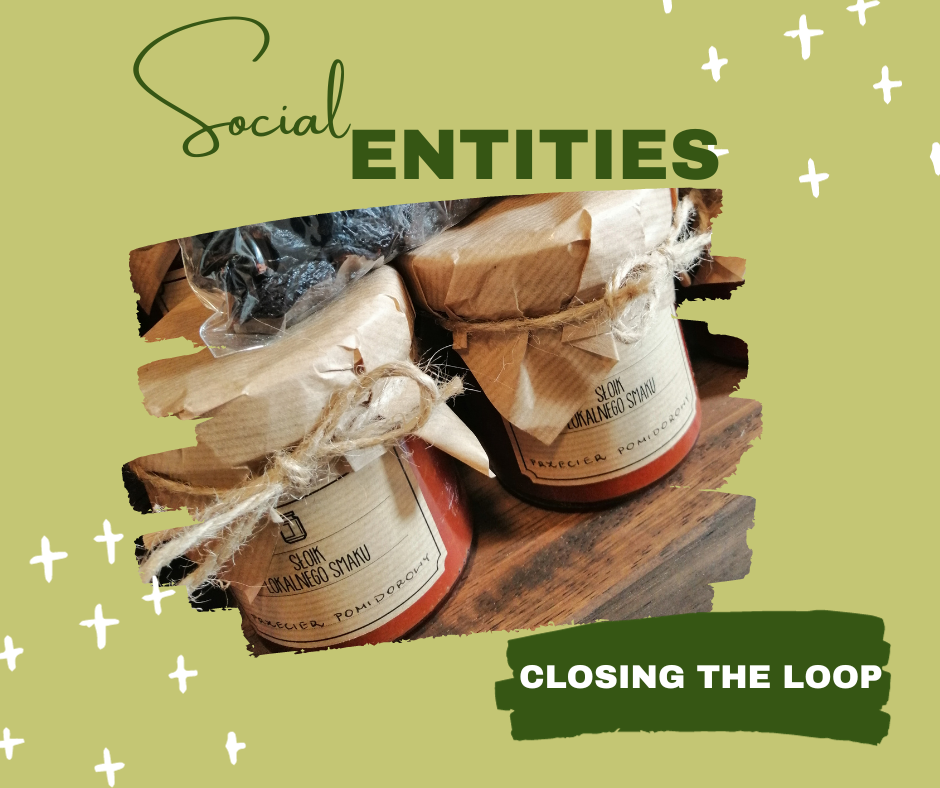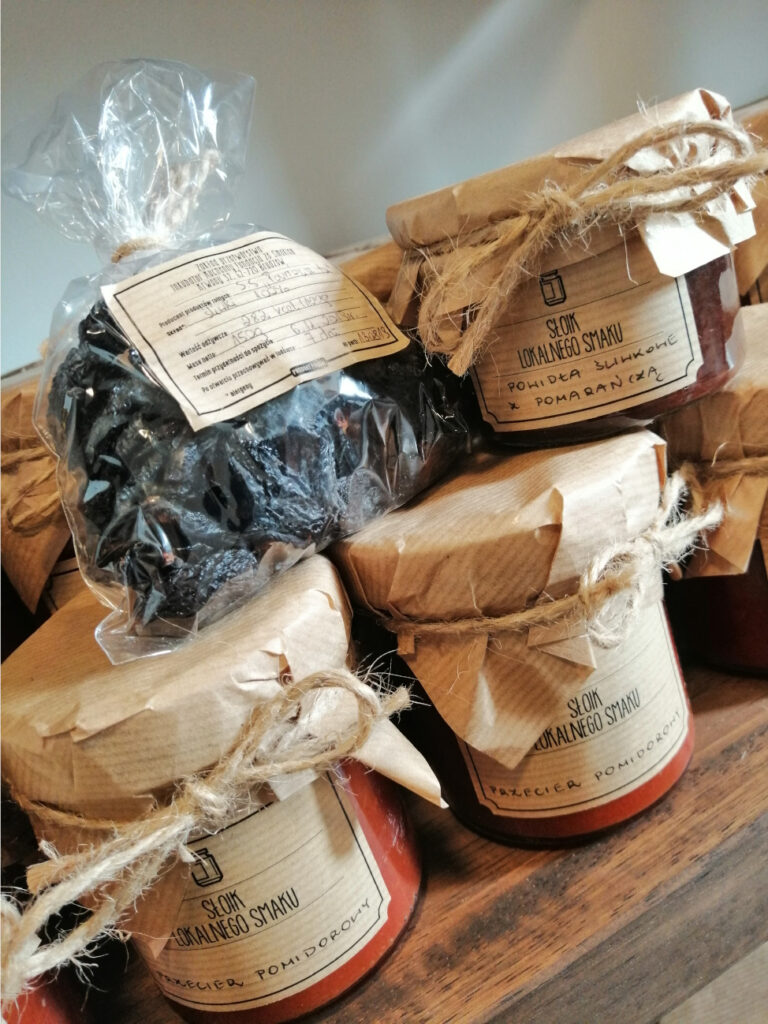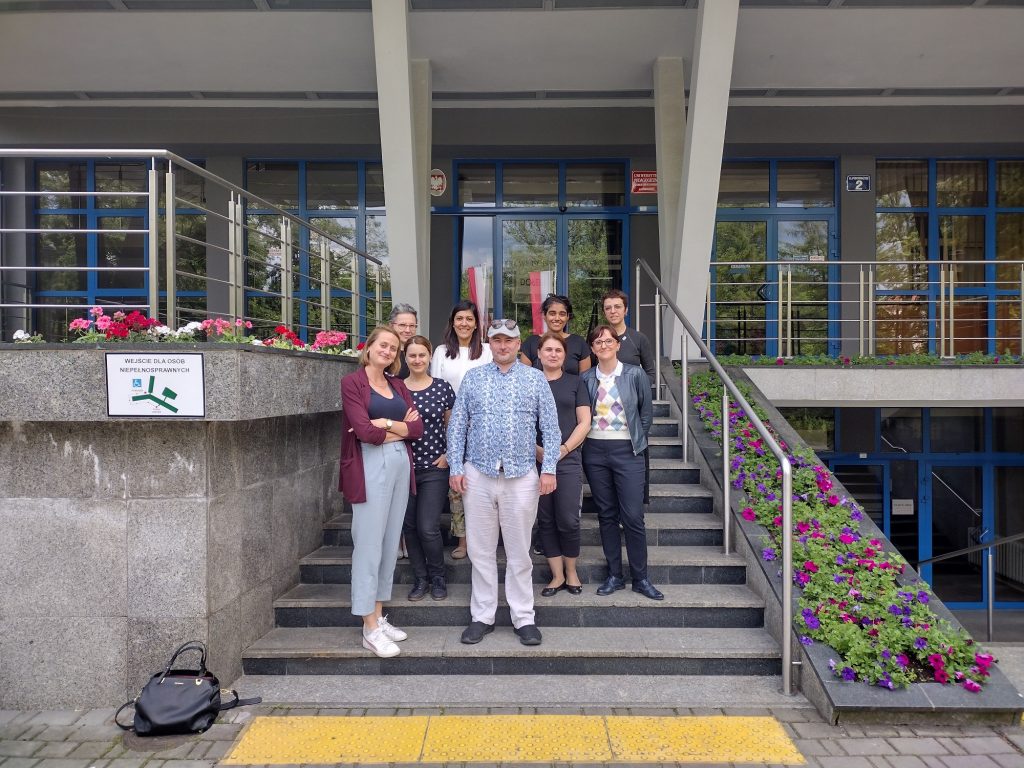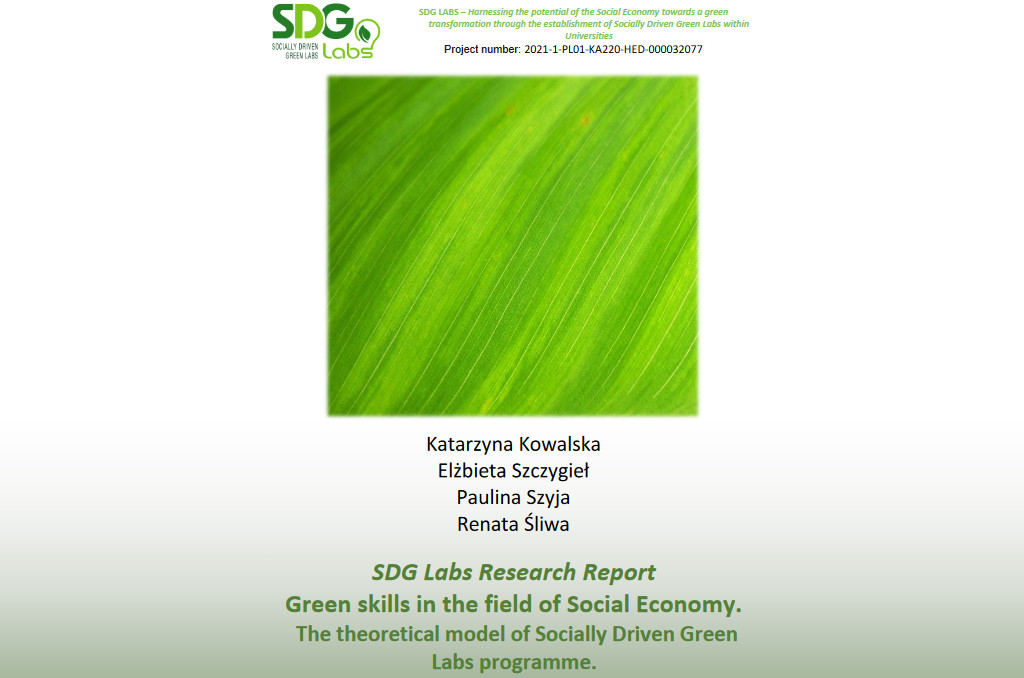The first social enterprises in Greater Wielkopolska are changing their operations to become more sustainable, green and environmentally friendly. The first step was closing the loop, which is one of the priorities of the European Green Deal.
A closed-loop economy is a production and consumption model that involves sharing, borrowing, reusing, repairing, renewing and recycling existing materials and products for as long as possible. Instructions on how to do this are introduced by the Polish Waste Act of December 14, 2012. It introduces the following waste hierarchy:
- Prevention – the best waste is one that has not been created. An example of prevention could be the introduction of optimal portion sizes especially for frequently undernourished foods or offering two portion sizes (small/large) to avoid creating waste.
- Reuse – extending the life of items. This could be, for example, offering reusable coffee cups or using suppliers that have reusable packaging for vegetables or bread, for example.
- Recycling – from correct sorting to finding the best recipient, recycling allows the material to be recycled and reused so it doesn’t become waste.
- Recovery – some waste we are still not able to sort and recycle, so other recovery is, for example, energy recovery, i.e. incineration with energy recovery, e.g. in an incinerator or cement plant.
In order to enable social cooperatives operating within the food service sector to implement the idea of GOZ, the Association for Social Cooperatives commissioned Cyrkl to carry out the task “Social Cooperatives Close the Circuit.” Cyrkl first conducted an educational workshop on “Building Awareness,” then conducted waste audits at selected cooperatives, prepared the “Social Cooperatives Close the Circulation” Report, and prepared recommendations for each of the cooperatives that participated in the project.
In order to check the current situation regarding waste management in social cooperatives in the food service sector, Cyrkl visited 5 selected companies. The project included: a review of the waste streams generated at the companies and how they are managed; an analysis of the cost of waste management; a review of current good practices related to waste reduction and, finally, an analysis of the compliance of current practices with legal requirements.
Sample recommendations for the Social Cooperative Return Here from Turek were as follows: “Shorten the supply chain – establish cooperation directly with the recipient of selected bio-waste, including: coffee grounds, potato peelings and carrot peelings. We recommend, therefore:
- Establish cooperation with a nearby composting plant in order to directly,
- Legally donate bio waste to produce natural fertilizer
- Cuisine: zero waste recipes.
One recipe prepared by the Cooperative, we think we can share: the idea of apple peelings left over from making compote. Instead of throwing away tens of kilograms of peelings, employees of the Social Cooperative Back Here reuse them to prepare their own homemade apple cider vinegar.
Recipe:
- apple crumb and peel – enough to fill the jar tightly
- for taste optional: raspberries or prunes,
- 5 tablespoons of sugar or honey
- a liter of water
Mix sugar or honey with water. Scald the jar, throw in the peels, stubs and sliced plum pieces. Pour sweet water over everything. Stir regularly. Bon appetite!
Read more about social cooperatives and Association For Social Cooperatives: http://www.spoldzielnie.org/index.php?lang=5




